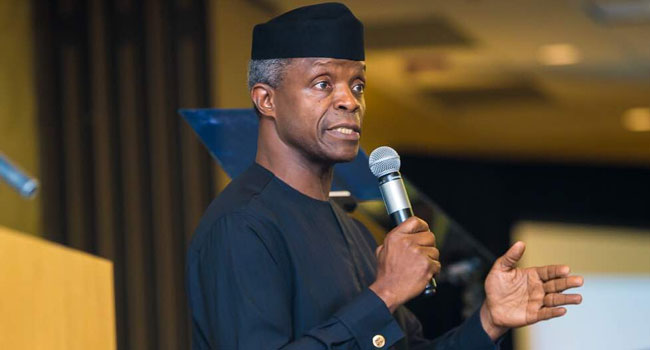
Speaking on Channels Television’s breakfast programme, Mr Alatishe, who is a medical doctor by profession, said that “in the rural area, you find that there’s a dirge of professionals.”
According to him, indigenes of the rural communities who are medical doctors do not want to return to their roots for the purpose of practicing their profession but would rather seek more attractive offers in urban cities.
As a result of this, “I found myself helping out particularly when we have serious emergencies in the maternity ward.”
He recounted tales of occasions when he had to set aside his royal duties to attend to citizens as a doctor.
“There have been events where they had cases like retained second twin… a woman delivers in the traditional home and the second twin will not come out.
“You know this thing is not just by calling the baby to come out, you have to do some maneuvers and then they take them to the maternity centre in the town. I’ve had cause to go and help them get the second baby out.
Sometimes we have to do surgical procedures. I’ve had cases too when I had to get retained placenta as well out and so many other serious cases that nurses cannot handle.”
The traditional head who started his private practice in Ijebu Ode but had to relocate to Ososa on a smaller scale, said that his subjects were pleased with his actions.
“I believe it has tremendously assisted the people a lot.”
Speaking on the roles of traditional heads in ensuring the success of primary health care in their locality, he advised traditional heads to be more interested in the health system. “You have the right to ask professional practicing in your villages, various towns: show me your certificate. Where did you graduate?”
Before being crowned ‘Oba,’ Alatishe was the pioneer executive secretary of Primary Health in Ogun state. Invariably, I’ve had cause to give lectures to the Obas at the Oba Council in Ogun state and I know that this is one of the things I actually told the Obas.
He stated that there are about 400 primary health centres but that majority of the doctors in local government are engaged in administrative duties and so “they don’t have time to attend to patients.”
He called on the government to look into the issue of medical personnel at the rural health centres.
“It’s always a good thing to establish health centres, but what do you do with it thereafter, apart from putting equipment what about personnel? You can’t get doctors to work in rural areas and this is something that the government really has to do something about.”
The Oba had taken the initiative to build a doctors’ quarters as a way of attracting hired doctors to stay but stopped the plan to make the government appreciate the efforts being made.
Asked about the relationship between traditional rulers and the local government, Mr Alatishe said “an average council chairman will tell you there’s scarcity of funds. I don’t think Ogun state is an exception.”
He further commended the Rivers State and Lagos State governments for their efforts in supporting grassroots projects.
He stressed on the need for both modern and traditional medical practitioners to collaborate in order to ensure that citizens at the grassroots are catered for.
He suggested that medical doctors in the National Youth Service Corps (NYSC) must be enticed with “serious incentives” to draw them to serve in the rural areas.




